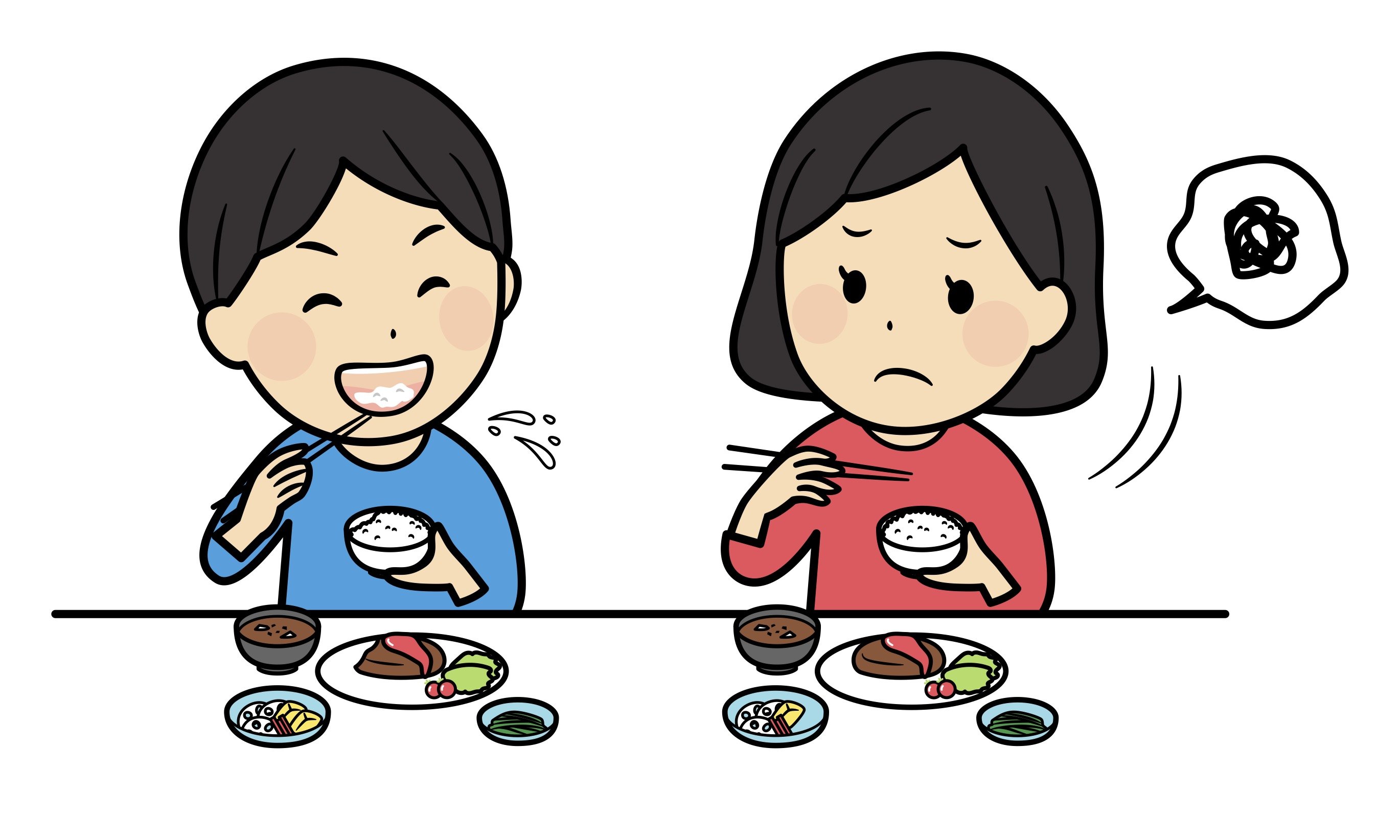Greetings and Manners in Japan: Important Points for Professional and Social Life
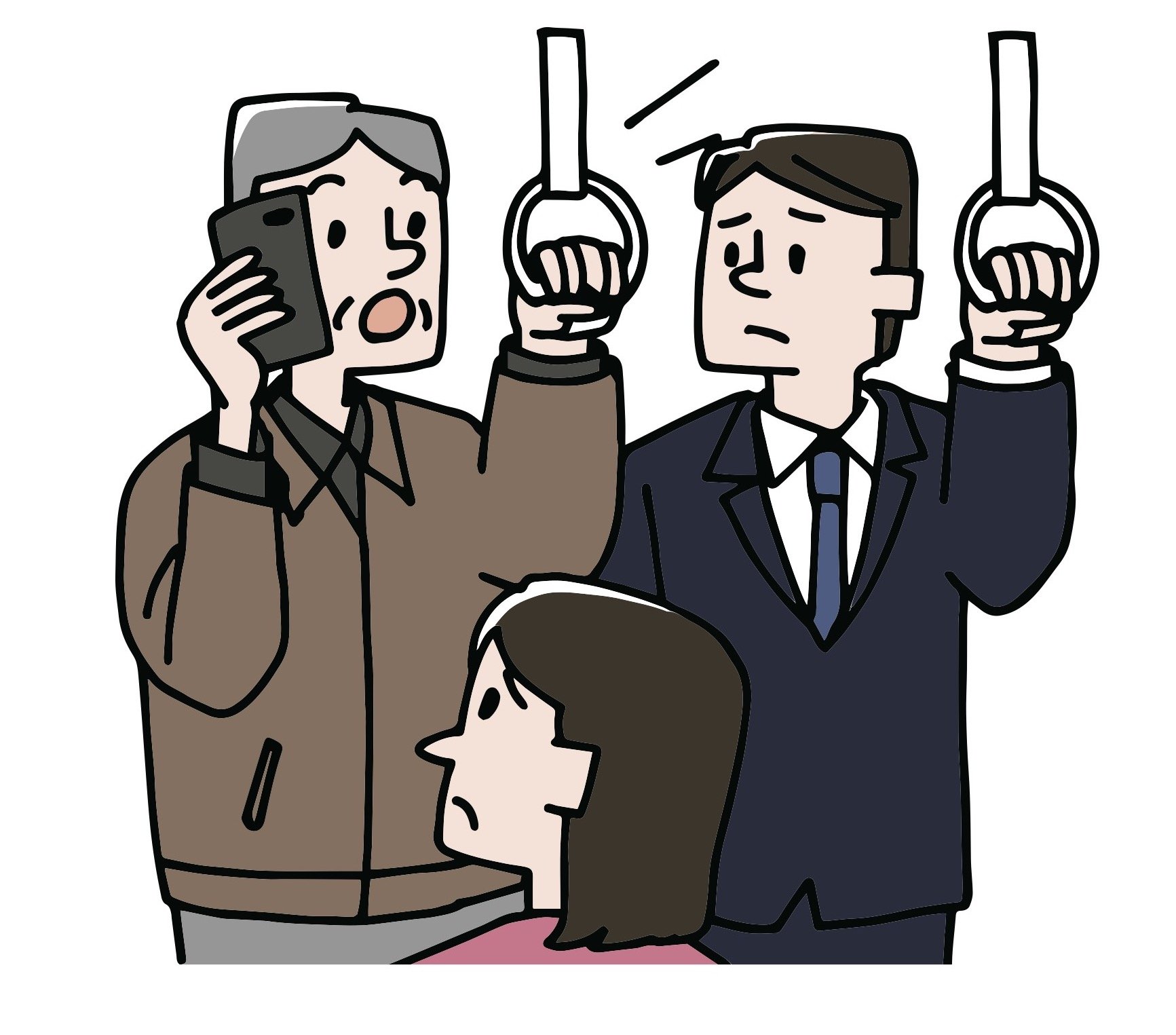
Greetings and manners are very important when working and living in Japan. In Japan, it is common to greet not only people you meet for the first time, but also coworkers and neighbors you see every day. In addition, having good manners is regarded as a presentation of respect for those around you.
In this article, we will introduce basic greetings, how to use them, as well as basic etiquette for foreigners coming to Japan as a Specified Skilled Worker.
Basic Greetings (Used Every Day)
Frequently Used Greetings
|
Japanese |
Meaning |
Time Of Day / Timing To Use |
|
おはようございます
|
Good morning |
Morning (6am - 10am) |
|
こんにちは
|
Hello |
Lunch (10:00-17:00) |
|
こんばんは
|
Good evening |
Night (from 5pm until bedtime) |
|
ありがとうございます
|
Thank you |
When saying thank you |
|
すみません
|
Excuse me / Sorry |
When speaking and apologizing |
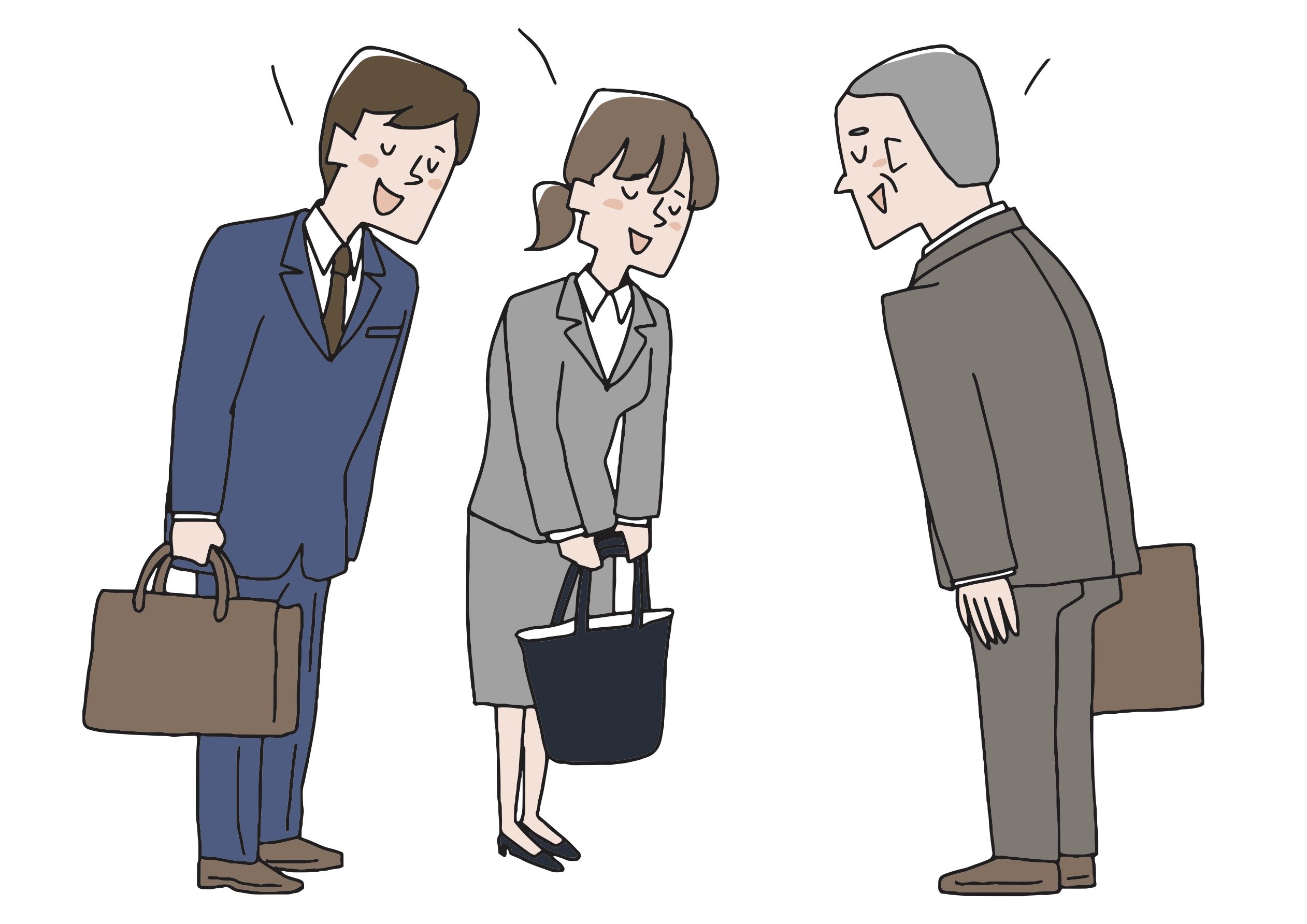
Important Point :
- At work, we say "Good morning" when we arrive and "Excuse me for leaving early" when we leave.
- Daily greetings are the first step in building trusting relationships.
Bowing (Gratitudes, Apologies, Greetings)
In Japan, verbal greetings are not the only greetings - bowing is also used commonly.
Types Of Bows
|
Bow Name |
Angle |
When To Use |
|
会釈(えしゃく)
|
About 15 degrees |
A quick greeting when passing by |
|
普通礼
|
About 30 degrees |
Expressing gratitude, greetings, visiting someone's house, workplace, etc. |
|
深礼(しんれい)
|
About 45 degrees |
When giving a proper greeting or apology |
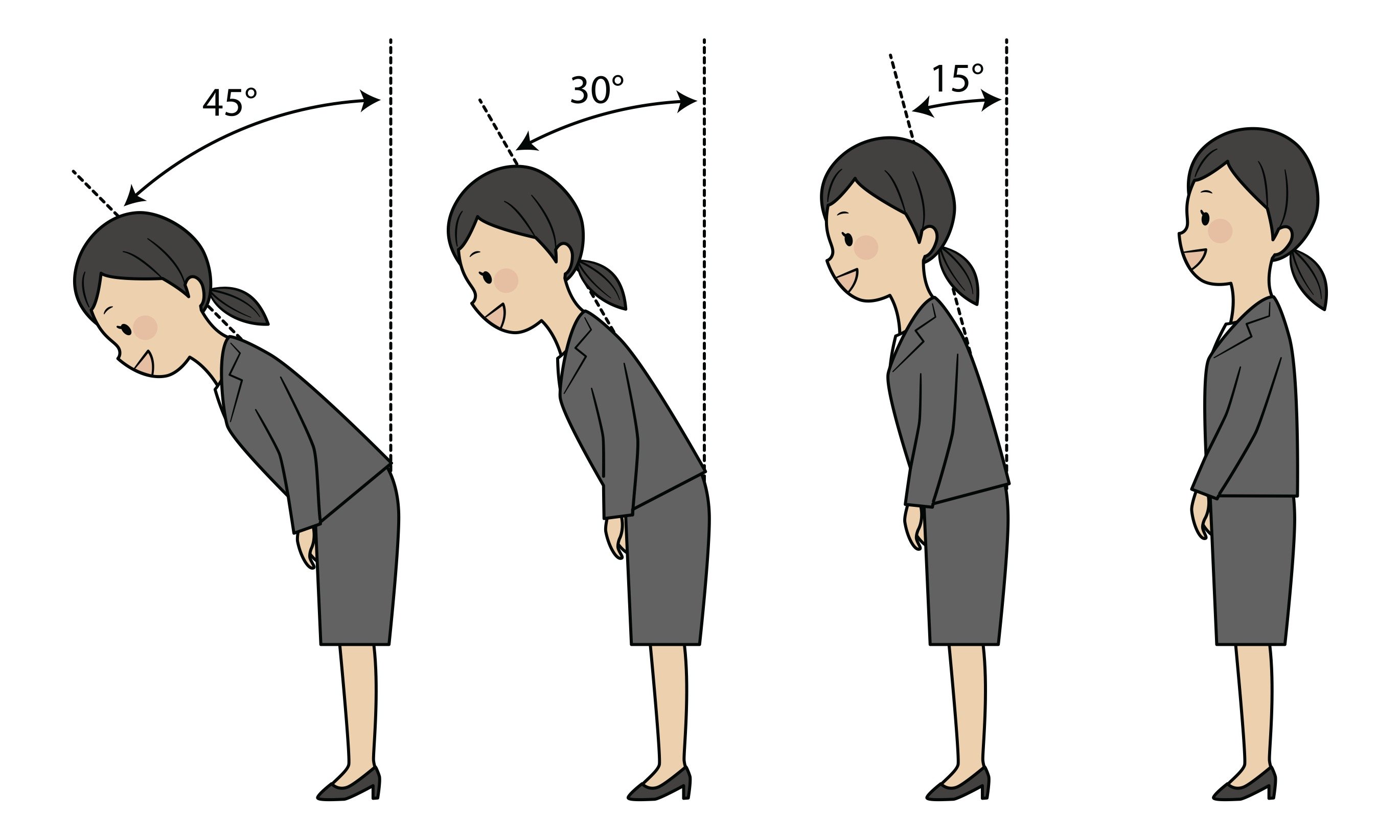
Important Point :
-
When bowing, make eye contact before bowing to give a polite impression.
- It is more polite to bow along with your words.
Japanese Manners (Important For Daily Life and Work)
① The Custom Of Taking Off Your Shoes
In Japan, you are required to take off your shoes before entering homes, schools, hospitals, and some workplaces. At the entrance, there is a space called "Genkan".
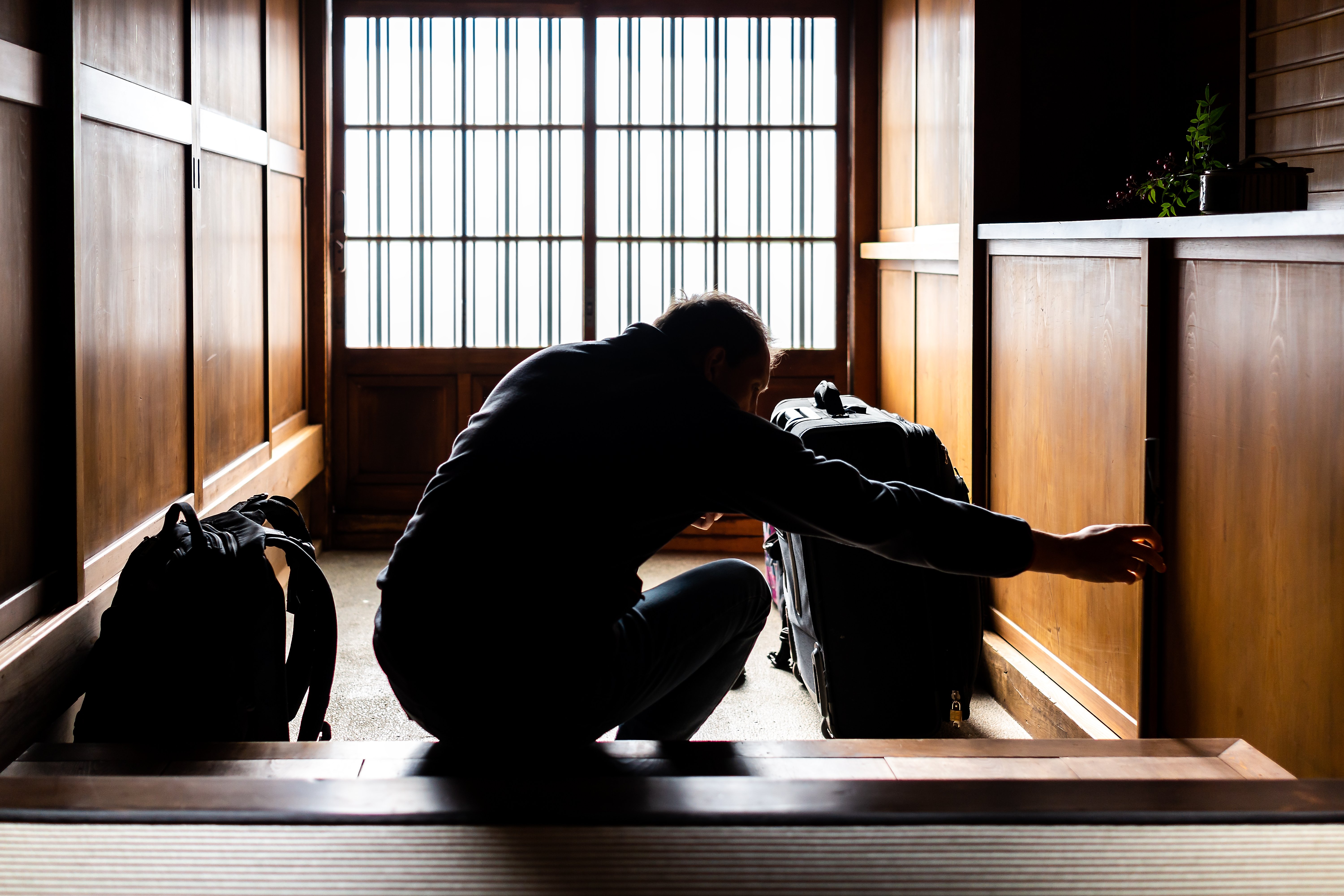
② Being on Time
In Japan, being punctual is very important.
-
If you are going to be late, you should contact your workplace, friend, or whoever you may be meeting, in advance.
- The standard is to arrive at work, a meeting, or an appointment five minutes early.
③ How to Separate Garbage
Although it varies by region, garbage is generally separated into two types:
- Combustible waste (food waste, paper, etc.)
- Non-combustible waste (cans, bottles, plastic)
Please follow the rules and separate your garbage properly.
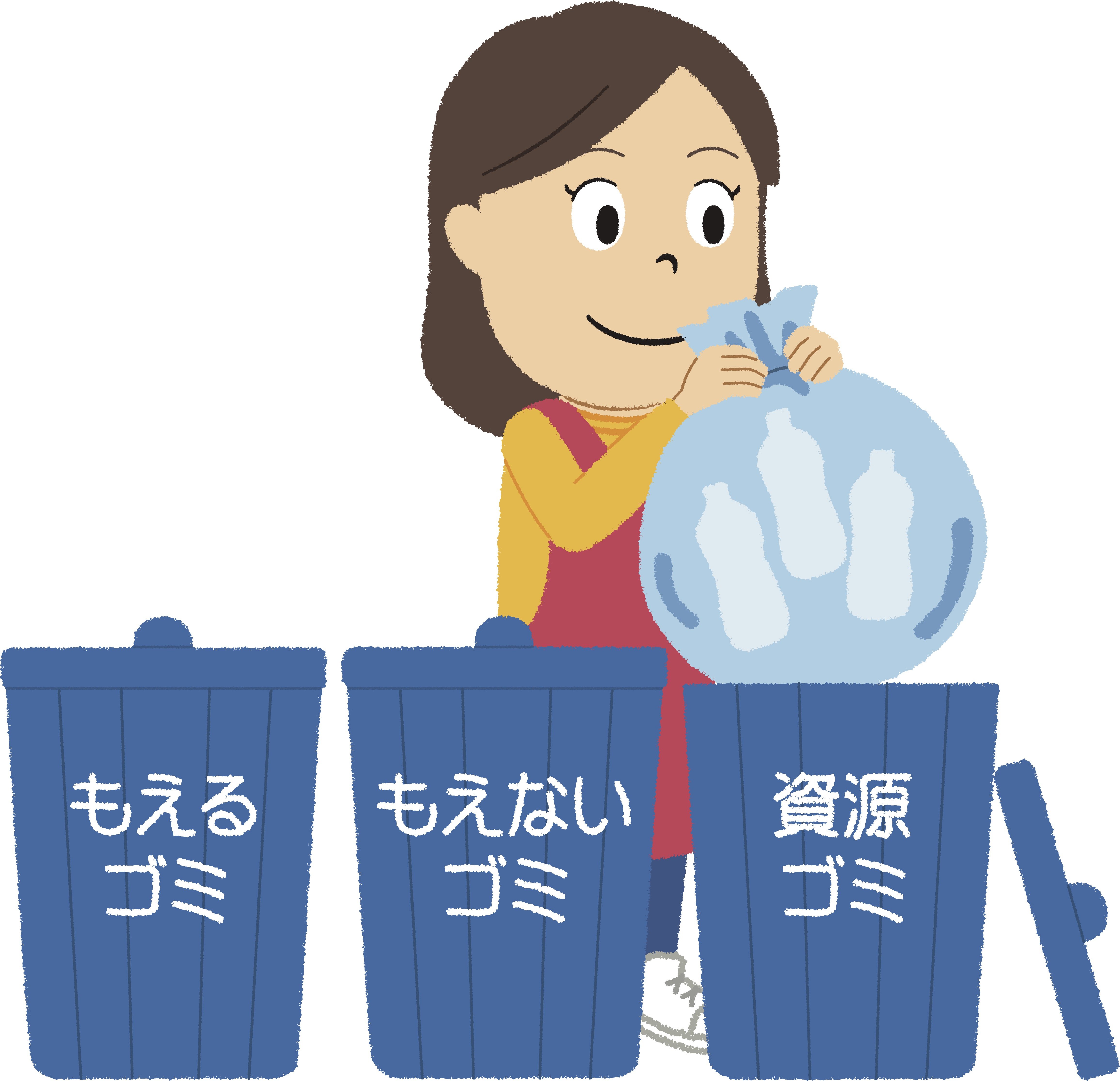
④ Manners on Trains and Buses
- Don't make calls.
- Try not to talk too loudly.
-
It is common courtesty in Japan to offer seats to elderly people, pregnant women, and people with disabilities ("Yuzuriai Seats").
⑤ Manners in the Workplace
1. Greetings and Responses
When your boss or a colleague speaks to you, respond (yes) in a clear voice. If you can greet and respond, you will be more likely to be regarded as a person who is"真面目" (earnest/hard-working/serious/diligent/competent).
② Keeping Clean
-
Take care of your appearance (hair, clothes, nails, etc.).
- It is important to stay hygenic as well, for example keeping your hands clean by washing your hands before working.
③ Rules and Reporting, Consultation, and Communication (Horenso)
At work, "horensou (report, contact, and consult)" is important.
|
Words |
Meaning |
|
Report (報告) |
Communicate the progress of your work |
|
Contact (連絡) |
Let others know what you need, and let others know information they need to know as well |
|
Consultation (相談) |
Ask about anything that may be of concern, is troubling you, or that you don't understand |
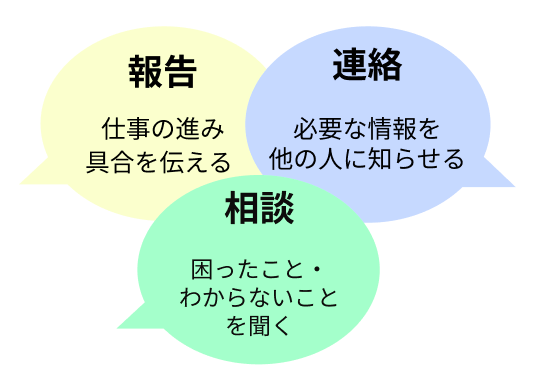
Summary: Greetings and good manners can help you gain trust
In order to work and live comfortably in Japan, it is important to greet people and exercise proper etiquette. The most important thing is to be diligent, careful, and considerate of the other person.
Daily greetings and small manners will build trust and rapport with your coworkers, neighbors, and others you come across. If you need any clarifications for how to appropriately greet someone in a certain setting, ask the people around you!

